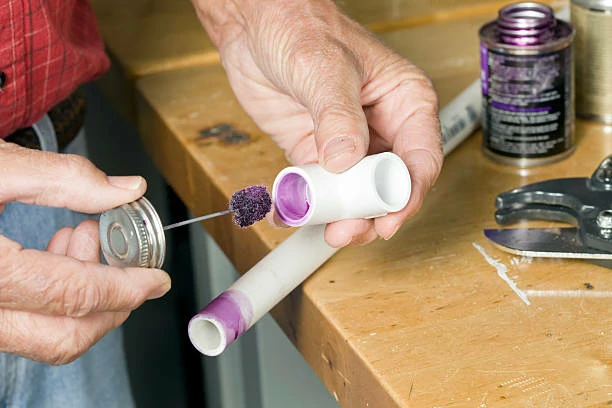PVC (polyvinyl chloride) pipes have transformed the water supply industry over the years. From their inception to their widespread adoption today, PVC pipes have seen significant advancements. This guide explores the evolution of PVC pipes in the water supply industry, highlighting their benefits, technological improvements, and future prospects.
Early Development and Introduction
The introduction of PVC pipes in the water supply industry marked a significant shift from traditional materials. Initially developed in the mid-20th century, PVC pipes provided a lightweight, durable alternative to metal and concrete pipes.
Initial Challenges
Early PVC pipes faced skepticism regarding their durability and safety. Concerns about chemical leaching and structural integrity initially limited their adoption. However, extensive research and improvements in manufacturing techniques addressed these issues, paving the way for broader acceptance.
Early Applications
PVC pipes found initial applications in low-pressure water distribution systems and agricultural irrigation. Their corrosion resistance and ease of installation made them an attractive option for these uses.
Technological Advancements
Technological advancements have played a crucial role in the evolution of PVC pipe, enhancing their performance and expanding their applications.
Improved Materials
Advancements in material science led to the development of high-quality PVC resins with enhanced properties. These materials offered greater strength, flexibility, and resistance to environmental stressors, making PVC pipes suitable for various water supply applications.
Enhanced Manufacturing Processes
Innovations in extrusion and molding techniques improved the consistency and quality of PVC pipe. Modern manufacturing processes ensure uniform wall thickness, smooth surfaces, and precise dimensions, enhancing the reliability and performance of PVC pipe.
Additives and Stabilizers
The incorporation of additives and stabilizers has significantly improved the durability and longevity of PVC pipe. UV stabilizers protect against sun damage, while plasticizers enhance flexibility, making PVC pipes suitable for a broader range of environmental conditions.
Widespread Adoption
The widespread adoption of PVC pipes in the water supply industry can be attributed to their numerous benefits and proven performance.
Corrosion Resistance
Unlike metal pipes, PVC pipe do not corrode or rust, making them ideal for water supply systems. Their resistance to chemical reactions ensures a longer lifespan and reduced maintenance costs.
Ease of Installation
PVC pipes are lightweight and easy to handle, reducing labor costs and installation time. Their flexibility allows for easy bending and fitting, making them suitable for various installation scenarios.
Cost-Effectiveness
The cost-effectiveness of PVC pipe has contributed to their popularity. They offer a lower initial cost compared to metal pipes and require less maintenance, resulting in long-term savings for water supply systems.
Environmental Considerations
The environmental impact of PVC pipe has become a topic of discussion, prompting the industry to adopt more sustainable practices.
Recycling Initiatives
Recycling initiatives for PVC pipes have gained momentum, reducing the environmental footprint of their production and disposal. Recycled PVC pipes retain their properties, providing a sustainable solution for water supply systems.
Reduced Energy Consumption
Advancements in manufacturing processes have led to reduced energy consumption and lower greenhouse gas emissions. These improvements contribute to the overall sustainability of PVC pipe.
Future Prospects
The future of PVC pipes in the water supply industry looks promising, with ongoing research and development aimed at further enhancing their performance and sustainability.
Smart Technology Integration
The integration of smart technology into PVC pipes is an emerging trend. Sensors embedded in the pipes can monitor water quality, pressure, and flow, providing real-time data for efficient water management.
Bio-Based PVC
Research into bio-based PVC, derived from renewable resources, offers a potential alternative to traditional PVC. Bio-based PVC aims to reduce reliance on fossil fuels and lower the environmental impact of PVC production.
Advanced Coatings
Advanced coatings and treatments for PVC pipes are being developed to enhance their resistance to biofouling and chemical exposure. These innovations extend the lifespan and performance of PVC pipe in harsh environments.
Global Adoption and Standards
The global adoption of PVC pipe continues to grow, driven by their proven benefits and compliance with international standards.
International Standards
PVC pipe must meet stringent international standards to ensure their safety and performance. Standards such as ISO 1452 for plastic piping systems provide guidelines for materials, dimensions, and testing.
Adoption in Developing Regions
PVC pipe have gained significant traction in developing regions due to their affordability and ease of installation. They offer a reliable solution for expanding water supply infrastructure in areas with limited resources.
Conclusion
The evolution of PVC pipe in the water supply industry reflects significant advancements in material science, manufacturing, and environmental practices. From their early development to their widespread adoption, PVC pipe have proven to be a durable, cost-effective, and sustainable solution for water supply systems. Ongoing research and technological innovations promise to further enhance their performance, making PVC pipe a cornerstone of modern water supply infrastructure. Understanding the evolution of PVC pipe helps appreciate their role in advancing global water supply systems and promotes the adoption of sustainable practices in the industry.
Connecter
IFAN est un fabricant chinois de tuyaux, de raccords et de vannes en plastique, fort de 30 ans d'expérience. Si vous êtes intéressé par IFAN Raccords en cuivre, vannes en cuivre, tuyaux et raccords en plastique, veuillez nous contacter. IFAN offers you a variety of standard pipes to meet your specific needs. Click below to learn more about IFAN’s wide range of affordable and cost-effective valve products and piping system related products.
We will reply your email or fax within 24 hours.
You can call us at any time if there is any question on our production.
For more information,pls visit our webside https://ifanpro.com/
Veuillez envoyer un courrier à l'adresse suivante [email protected]
Whatsapp : + 86 19857948982














Commentaires récents